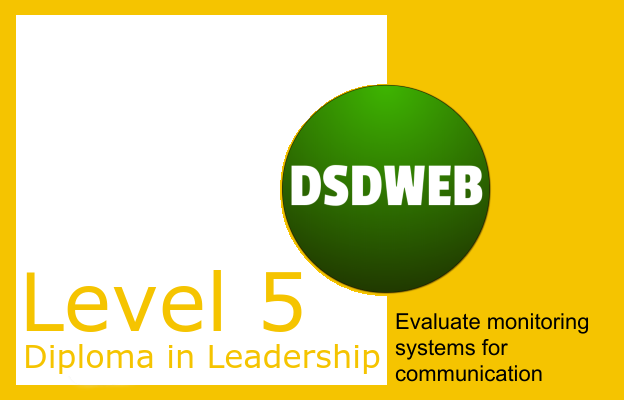This page is designed to answer the following questions:
- 4.2 Evaluate monitoring systems for communication (Level 5 Diploma in Leadership and Management for Adult Care, Communication & Information Management in Adult Care)
NOTE: This page has been quality assured for 2023 as per our Quality Assurance policy.
In the previous section, we looked at systems for monitoring communication and information management within your organisation. For this assessment criterion, you will be required to critically evaluate existing communication and information delivery systems and make recommendations for change.
A critical evaluation means looking at all the available evidence and assessing all the strengths and weaknesses from different perspectives before making a reasonable argument for the preferential option.
For example, you may look at the monitoring systems your organisation uses to stay abreast with changes to legislation and regulation. The existing system could involve the registered manager subscribing to sector-specific email bulletins and then reviewing and updating policies themselves as and when required.
You could argue that although this system has worked in the past, there is risk in this strategy because only one person is responsible for the task. If the registered manager became incapacitated or left the organisation, who would the responsibility fall to and would they be able to gain access to the same sources of information?
In addition, the lack of collaboration means that the knowledge and experience of the rest of the management team are not available during the decision-making process, which could lead to policy changes that could have been implemented in a better way if more people were involved.
You could argue that the system should be changed so that sources of information are available to all members of the senior management team and any changes to legislation or regulation are discussed as a group before changes are decided and implemented. The registered manager will still chair the meetings and have the overriding decision and a contingency plan could be put in place if the registered manager is unavailable. This would help to create a more robust and effective information management system.

